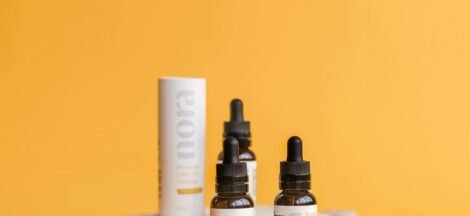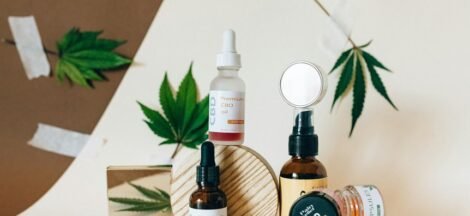Are you curious about CBD but hesitant to try it because you don’t want to get high? Or have you heard conflicting information about whether or not CBD contains THC? Well, it’s time to clear up the misconceptions and get the facts straight. In this blog post, we’ll dive into the truth about whether or not CBD has THC and what that means for your health and wellness. So sit back, relax, and let’s explore together!
What is CBD?
CBD, or cannabidiol, is a naturally-occurring compound found in the cannabis plant. Unlike its more well-known counterpart THC, CBD does not produce any psychoactive effects. Instead, it has been shown to have a number of potential health benefits, including reducing anxiety and pain, as well as having anti-inflammatory and neuroprotective properties.
While CBD can be derived from both marijuana and hemp plants, it is most commonly extracted from hemp due to the lower THC content. This means that CBD products made from hemp are federally legal in the United States, while those made from marijuana are still illegal under federal law.
So what does this all mean for you? If you’re interested in trying CBD but are worried about the potential for psychoactive effects, rest assured that you won’t experience any “high” from using CBD products made from hemp. However, it’s always important to do your research and make sure you buy quality products from a reputable source.
CBD vs THC
CBD and THC are two of the most prevalent cannabinoids found in cannabis. They are also the most well-known. CBD is short for cannabidiol, and THC stands for tetrahydrocannabinol.
CBD is non-psychoactive, meaning it will not get you high. THC is psychoactive, and is the cannabinoid responsible for the marijuana high. CBD can actually counteract the psychoactive effects of THC.
So why the confusion? Well, it turns out that CBD and THC share some similarities in their chemical structure. This similarity leads some people to believe that CBD must also be psychoactive like THC. However, this is not the case. The difference in their effects is due to their different binding affinity to receptors in the brain.
CBD and THC are two different cannabinoids found in cannabis plants. CBD is non-psychoactive, while THC is responsible for the marijuana high. Some people believe that CBD must be psychoactive because it shares some similarities with THC in chemical structure, but this is not the case.
The Benefits of CBD
CBD has been shown to offer a wide variety of health benefits, from relieving pain and inflammation to reducing anxiety and depression.
CBD is non-psychoactive, meaning it won’t get you high, and there are no known side effects. This makes it an appealing treatment option for those who are looking for relief from conditions without the mind-altering effects of THC.
CBD is also being studied for its potential to treat other medical conditions, such as epilepsy, Alzheimer’s disease, and even cancer.
The Side Effects of CBD
CBD is a non-psychoactive compound found in cannabis that has shown promise in treating a variety of medical conditions. While CBD is generally considered safe, it can cause some side effects in some people. The most common side effects of CBD include dry mouth, drowsiness, and diarrhea. Some people may also experience reduced appetite, changes in weight, and fatigue.
While most people tolerate CBD well, it is important to be aware of the potential side effects before taking it. If you experience any serious side effects after taking CBD, stop taking it immediately and speak to a doctor.
Does CBD Have THC?
CBD is short for cannabidiol and is one of the many cannabinoids found in cannabis. THC, or tetrahydrocannabinol, is another cannabinoid and is the main psychoactive component of cannabis. CBD does not have any psychoactive effects and will not get you high. Some people are concerned that CBD products may contain trace amounts of THC, but these products are legal in most countries as long as they contain less than 0.3% THC. CBD is often used to relieve anxiety, pain, and inflammation, and has been shown to be helpful in treating conditions like epilepsy and cancer.
How to Take CBD
CBD is a popular supplement that is derived from the cannabis plant. Unlike its cousin THC, CBD does not have any psychoactive effects. This means that it will not produce a “high” or alter your state of mind in any way. CBD has many potential health benefits, including reducing anxiety, relieving pain, and improving sleep.
If you’re interested in trying CBD, it’s important to know how to take it properly. In this article, we’ll go over everything you need to know about taking CBD, including the different forms it comes in and the best ways to take it for optimal results.
CBD is available in a variety of forms, including oils, tinctures, capsules, edibles, and topicals. The form you choose will depend on your personal preferences and desired effects.
Oils and tinctures are one of the most popular ways to take CBD. They are typically taken sublingually (under the tongue) or added to food or drink. Capsules are another easy-to-use option that allows you to precisely measure your dosage. Edibles are a great choice for those who prefer not to taste the hemp flavor of CBD oil. Topicals are applied directly to the skin and can be used to relieve localized pain or inflammation.
When taking CBD for the first time, it’s important to start with a low dose and increase gradually as needed. It
Conclusion
Understanding the truth about does CBD have THC is essential to making informed decisions. We hope this article has helped you realize that not all CBD products contain THC, and provided a better understanding of what you are using when shopping for hemp-derived products. Always do your research before buying any product and make sure it meets your needs, as well as complies with federal regulations. With this knowledge in hand, we believe consumers can confidently use these hemp-derived products safely and effectively.





 The Calming Effects of CBD Oil: how does cbd oil make you feel
The Calming Effects of CBD Oil: how does cbd oil make you feel